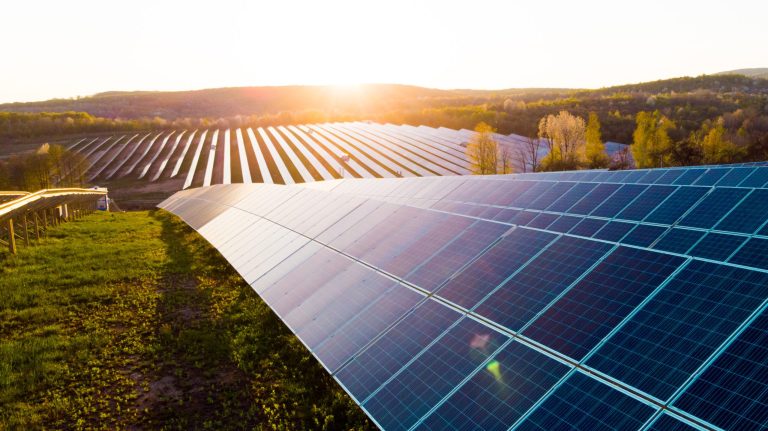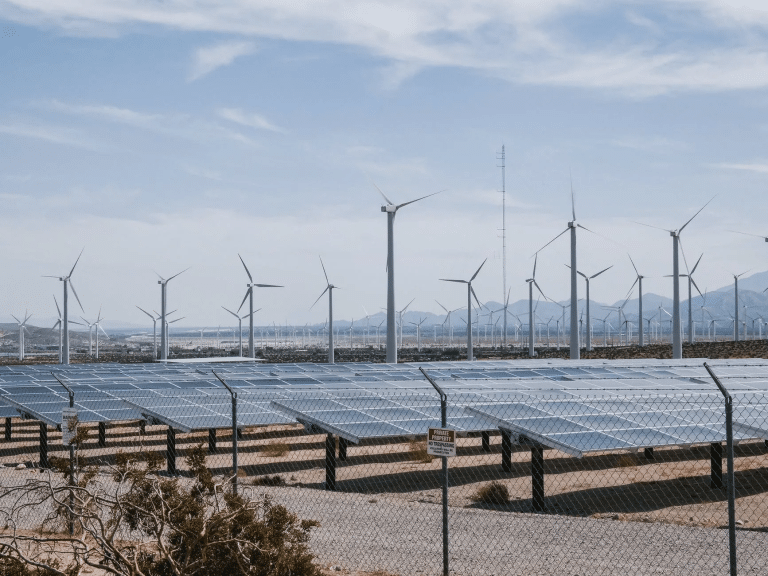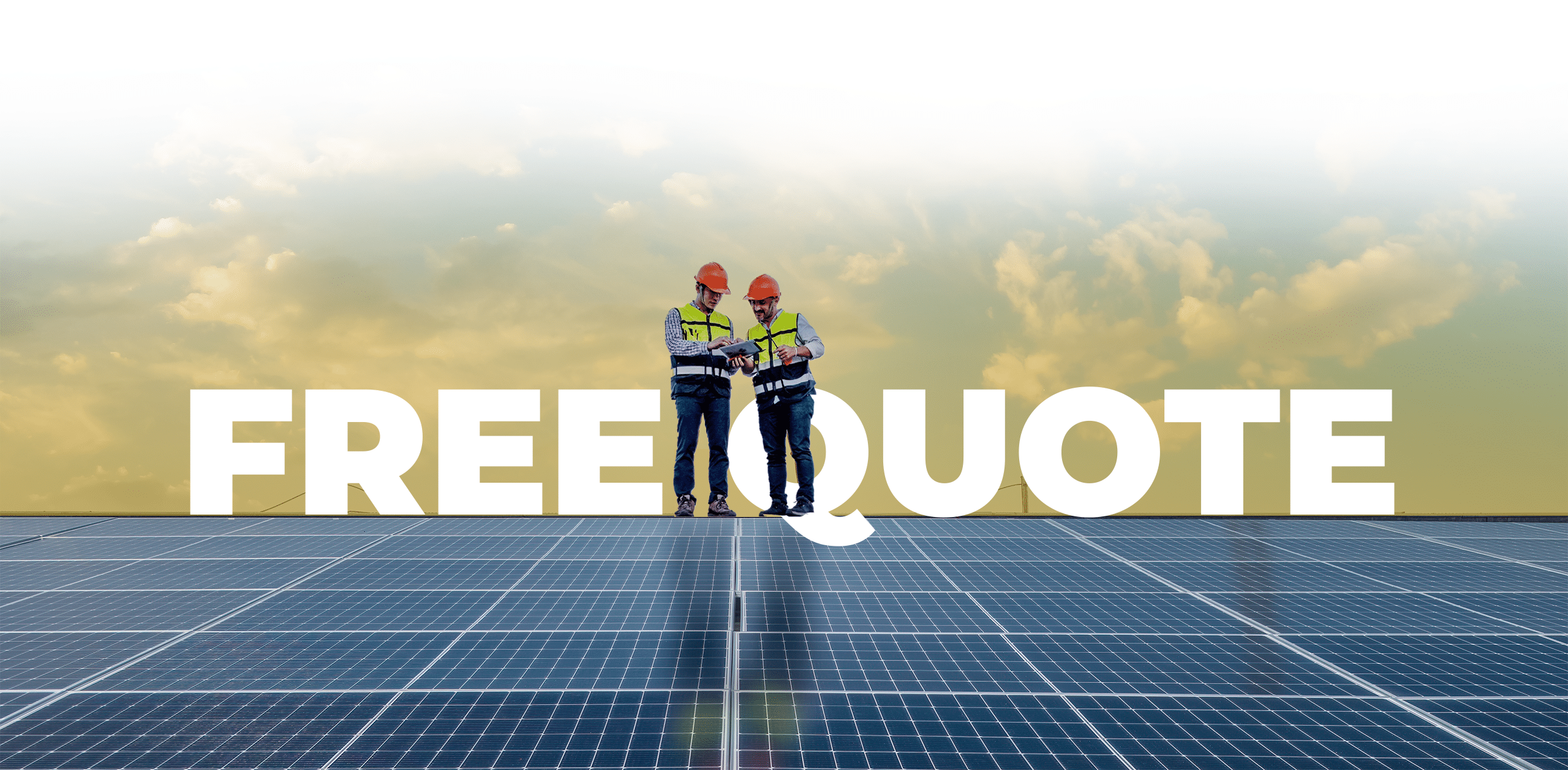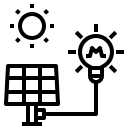There are many myths about solar that are untrue. Here are the most common ones debunked.
Solar myth #1: “The government will give you free solar panels.”
You may come across scammy solar advertisements about “free solar panels from the government.” This isn’t true; you can go solar for $0 down with a solar loan or lease, but federal and state governments do not provide free solar panel installations.
While the government won’t cover the cost of a solar panel installation, they do subsidize the upfront cost of purchasing a solar panel system through various solar incentives. The federal investment tax credit (ITC) allows you to claim 26 percent of the cost of your solar installation as a credit towards what you owe in federal taxes. Depending on where you live, your state or local government may also provide additional solar incentives such as tax credits, rebates, or performance-based incentives (PBIs).
Solar myth #2: “When you go solar, you will get a check from your utility company.”
This isn’t true, except in rare circumstances. Most utility companies will have restrictions in place to prevent you from interconnecting a solar panel system that produces far more energy than what your meter history indicates you need. Even if you are generating more solar energy than you’re using, utilities that offer net metering will provide monetary credits towards your future electricity bill, but rarely will they pay these out as a check – more likely, it will remain an ongoing credit on your electricity bill.
In the rare circumstance that your utility company will send you a check for excess electricity, it’s likely for a wholesale electricity rate that has a much lower value than a net metering credit. Another circumstance in which you’d receive a check from your utility from solar energy is if they offer a PBI for solar generation separately from net metering (for example, National Grid’s Renewable Energy Growth incentive).
Solar myth #3: “Solar panels won’t work in the winter.”
Solar panels need sunshine to generate electricity. If you live in a particularly cold state that experiences a lot of snowstorms, you will likely generate less solar power in the winter months than summer because of fewer sunlight hours. However, the amount of electricity you’ll generate in the winter will still be enough to enjoy savings on your electricity bill. In fact, during the winter months when the sun is shining, solar panels actually perform more efficiently due to the colder temperatures.
When your solar panels are covered in snow, they will not generate power. Fortunately, solar panels are designed to bear a certain amount of weight and the snow shouldn’t cause any issues. Additionally, most panels are tilted at an angle so next time the sun comes out, the snow will slide off on its own.
Solar myth #4: “Going solar means going off the grid”
It is possible to install an off-grid solar panel system with the use of solar batteries, but the majority of solar panel installations are grid-tied. This allows you to use solar energy produced by your system during the day and draw electricity from the grid after the sun is down.
That doesn’t mean that you can’t cover all of your electricity needs with a solar panel system – because of a policy called net metering, your utility will provide credits on your electricity bill for excess energy produced during the day. With net metering, you’ll only be charged for the net amount of energy you’re using from the grid. If you generate more electricity than you use in a given month, you can use those net metering credits on a future bill. Even if your solar energy system produces more energy than you use in your electricity billing cycle, you will still receive an electric bill from your utility, but it will show a negative amount owed.
Net metering policies can vary by state and utility, so it’s a good idea to check with your utility company about the specifics of their net metering prior to going solar.
Solar myth #5: “Solar panels will damage your roof.”
Some property owners hesitate in installing solar on rooftops because they worry about possible damage. Luckily, roof damage from a solar panel installation is extremely rare.
For one, solar installation companies will inspect roofs prior to installing on them. An engineering and structural review of your roof will confirm whether or not it can withstand the added weight of a solar installation. Most solar installations will require holes in the roof to affix the racking, but sealants at these holes will prevent roof leaks. Solar installers will also provide a workmanship warranty (typically from 5 to 25 years) to protect you on the off chance that damage occurs as a result of their installation work.
As long as you’re working with a qualified, licensed solar professional, you won’t have to worry about roof damage. Stories of roof damage after solar installations are usually a result of a poor installation, or a company installing solar on a roof that wasn’t in good condition, to begin with.
Solar myth #6: “Solar is only for rich people.”
Many people are under the assumption that solar panels are a luxury purchase, and strictly an option for affluent people. This isn’t true – thanks to the falling costs of solar and the accessibility of financing options, solar is a feasible option for many property owners.
The cost of solar has dropped substantially in the last decade – in 2008, the average cost of a solar panel installation was $8.82 per watt. For comparison, the average cost for solar quoted on EnergySage now is $2.76 per watt.

As far as financing options go, there are solar loans and leases available for no money down. If your solar installation covers 100 percent of your electricity needs and your monthly solar finance payment is lower than your typical electricity bill, you’ll see savings right off the bat.
Via: EnergySage







